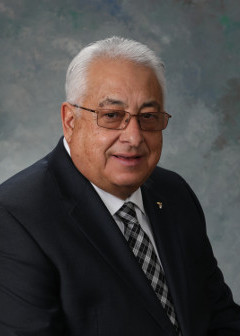SB 241/a HWY CONSTRUCTION AUTO SPEED ENFORCEMENT
Sponsored By: Sen Roberto (Bobby) Gonzales
Actions: [2] STBTC/SJC-STBTC [8] DP/a-SJC
Scheduled: Not Scheduled
Senate Bill 241 (SB 241) relates to motor vehicles. SB 241 enacts the Highway Construction Zone Automated Speed Enforcement Act that allows for the use of automatic speed detection devices to detect, issue and enforce civil fines for speeding within construction zones.Legislation Overview:
Senate Bill 241 (SB 241) enacts the Highway Construction Zone Automated Speed Enforcement Act (Act) which allows the Department of Transportation (DOT) to install automated speed detection devices and impose fines for speeding violations in highway construction zones. An “automated speed detection device” is a device that takes a photo of a speeding vehicle and sends this information to a collection point. Under the Act, the registered owner of a motor vehicle is strictly and vicariously liable for a speeding violation, and when the vehicle has more than one owner, all of the owners are jointly liable. The Act imposes the following fines for speeding violations within designated highway construction zones: $50 (6-10 mph over the limit); $100 (11-15 mph over the limit); and $200 (16 or more mph over the limit). The Act provides the procedure for DOT to process alleged speeding violations. DOT must send by certified mail a notice of a civil fine to the owner of the vehicle and inform the owner to either pay the fine or request a hearing. However, there are only four possible defenses to a speeding violation: (1) the vehicle was stolen or driven by another without the owner’s knowledge or permission; (2) the ownership of the vehicle had been transferred and the original owner was not the driver; (3) there is no evidence that the vehicle was involved in this violation; or (4) the owner already received a speeding violation ticket from a law enforcement officer. If payment of the fine or a request for a hearing is not made within 30 days, the owner is in default of the fine and DOT may collect the debt and may also be entitled to attorney fees. The hearing examiner will be appointed by DOT and must hold a hearing within 60 days of the request. At the hearing, the rules of evidence and civil procedure do not apply and DOT has the burden of proving the violation by a preponderance of the evidence. SB 241 allows DOT to create rules, but the Traffic Safety Bureau is responsible for administering the system. The Act makes clear that any contractor hired to help in administering the system cannot be compensated for the number of civil fine notices that are issued. In addition, detection devices must be calibrated annually. SB 241 is effective July 1, 2025.Amendments:
On February 18, 2025, the Senate Tax, Business and Transportation Committee amended SB 241 by creating the Highway Construction Zone Automated Speed Enforcement Fund (“Fund”). Money in the Fund is appropriated to the Department of Transportation to carry out the provisions of the Act, and administered by the Traffic Safety Bureau to implement the provisions of the Act. The amendment then provides that the fines collected according to the Act must be deposited in the Fund, instead of retained by the Traffic Safety Bureau.
-
Bill Documents arrow_drop_down
-
Commitee Reports & Amendments arrow_drop_down
-
Floor Amendments arrow_drop_down
-
Floor Votes arrow_drop_down
